(Reporters: Zhang Huiting, Zhang Suqiu) On September 22, Building A Community of a Shared Future for Humanity International Think Tank Forum (2025) was successfully held at Communication University of China. This forum focused on the core theme of “Protecting and promoting the diversity of cultural expressions: practice and the future” and was one of the series of celebration activities for the 20th anniversary of UNESCO’s Convention on the Protection and Promotion of the Diversity of Cultural Expressions, 2005. The forum brought together leading officials and renowned experts and scholars from universities, think tanks and research institutions of 18 countries, including China, Argentina, Egypt, Austria, Pakistan, Germany, Russia, Cuba, South Korea, Malaysia, the United States, Mexico, Nigeria, Japan, Sri Lanka, Tanzania, Venezuela and the United Kingdom. All parties conducted in-depth discussions and exchanges on topics such as how to promote the protection and innovation of cultural diversity, further implement the Global Civilization Initiative proposed by General Secretary Xi Jinping, and advance the building of a Community with a Shared Future for Humanity.
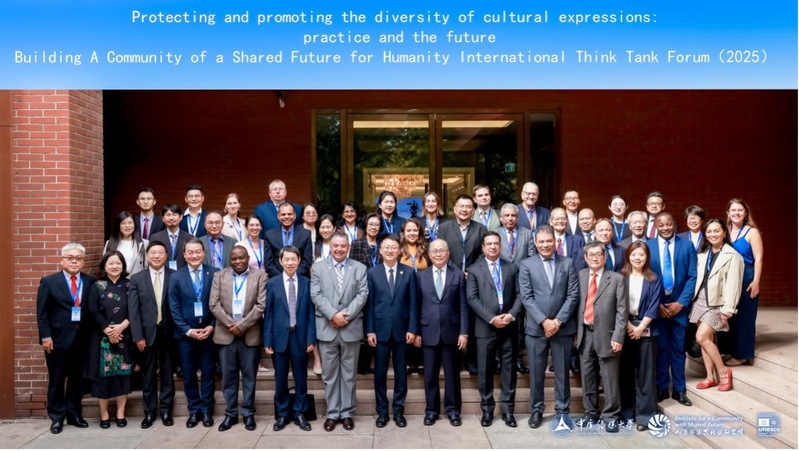
Photo 1 Group Photo of the Conference
Yang Yi, Vice President of Communication University of China, delivered the opening address. Hu Sishe, Standing Committee Member of the National Committee of the Chinese People's Political Consultative Conference and Former Vice President of the Chinese People's Association for Friendship with Foreign Countries, Qiu Xiaoqi, Vice President of the China Public Diplomacy Association, and Hubert Benitez, President of St. Peter's University, USA, gave keynote speeches. The opening ceremony of the forum was hosted by Li Huailiang, Dean of the Institute for a Community with a Shared Future at Communication University of China.
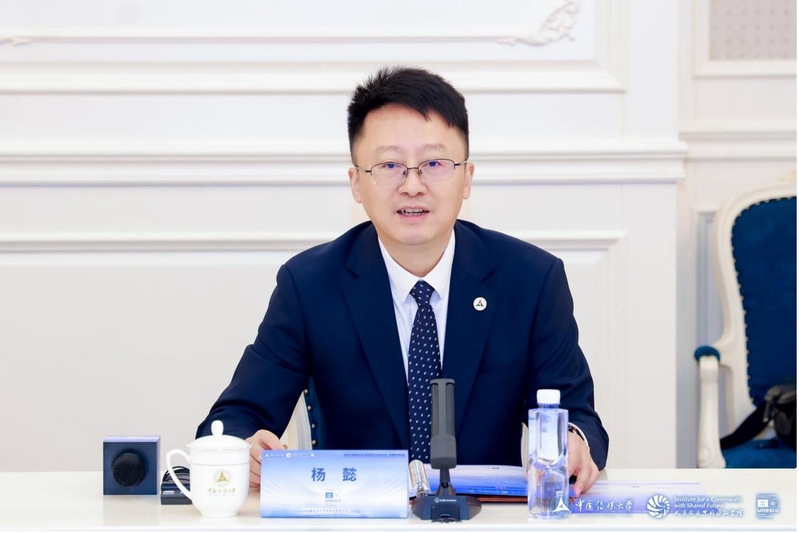
Photo 2 Vice President Yang Yi Delivering the Opening Address
In his address, Yang Yi stated that cultural diversity can provide impetus for building a Community with a Shared Future for Mankind. China has achieved remarkable results in its exploration of areas such as the digitalization of intangible cultural heritage. Communication University of China attaches great importance to international cooperation and cross-cultural exchanges, strongly supports the development of the Institute for a Community with a Shared Future, and has achieved fruitful research and practical outcomes. He expressed the hope that while advancing research on the Community with a Shared Future for Mankind, efforts will be made to strengthen cultural exchanges with education and youth as the main participants, respect the diversity of civilizations, safeguard cultural diversity, pursue the common values of all mankind, and embark on a new journey of building a garden of world civilizations.
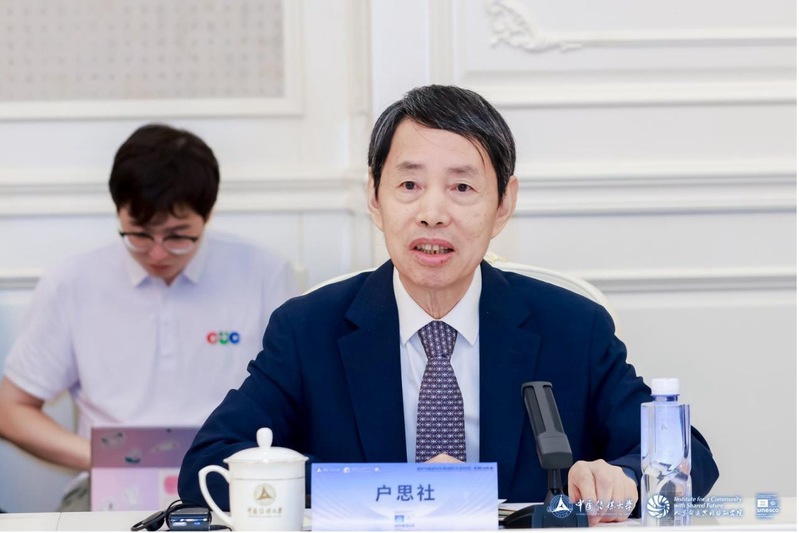
Photo 3 Committee Member Hu Sishe Giving a Keynote Speech
Hu Sishe delivered a speech titled China's Practices and Cultural Governance Experience in Protecting and Promoting Cultural Diversity. He noted that Chinese culture features both diversity and unity, openness and inclusiveness, and the awareness of national community is integrated with cultural diversity. The exchanges and mutual learning between Chinese and foreign cultures fully demonstrate the inclusiveness and innovativeness of Chinese culture. He also introduced China's practices and future directions in cultural diversity. China combines the awareness of national community with the protection of cultural diversity, takes the Global Civilization Initiative as the theoretical foundation, implements the Convention through practices such as the protection of intangible cultural heritage, legislation, bilingual education and digitalization, and promotes the establishment of an International Day for Dialogue among Civilizations. Looking ahead, it is necessary to build a cross-civilization dialogue governance system, enhance efficiency through digitalization, improve the implementation path of the Convention, and incorporate the protection of cultural diversity into the assessment system of the United Nations Sustainable Development Goals.
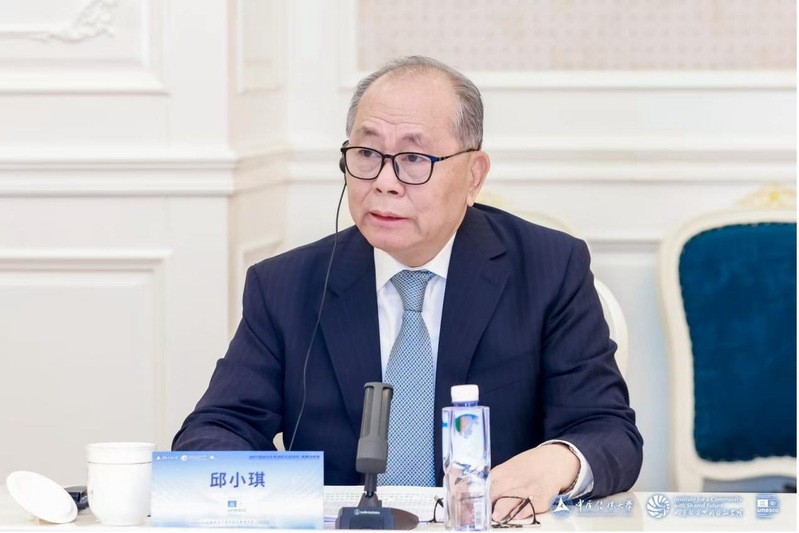
Photo 4 Vice President Qiu Xiaoqi Giving a Keynote Speech
In his keynote speech, Qiu Xiaoqi emphasized that protecting and developing cultural diversity is of great significance to human civilization today. The Global Civilization Initiative proposed by President Xi Jinping, with the four “common advocacies” at its core, points out the direction for cultural exchanges, mutual learning among civilizations and the protection of diversity, and represents the wisdom contributed by China. Civilizations are fascinating because of their diversity. The national cultures of all countries are neither superior nor inferior—they are all the spiritual treasures of mankind. Currently, the world is facing major changes unseen in a century. Issues such as the “information cocoon” in the digital age, unequal cultural exchanges amid globalization, and local conflicts have brought challenges to the protection of cultural diversity. However, the guiding role of the Global Civilization Initiative has become increasingly prominent, which can effectively contribute to global cultural governance. All countries should work together to enable different civilizations to shine through exchanges and mutual learning, and jointly push the building of a Community with a Shared Future for Humanity to a new level.
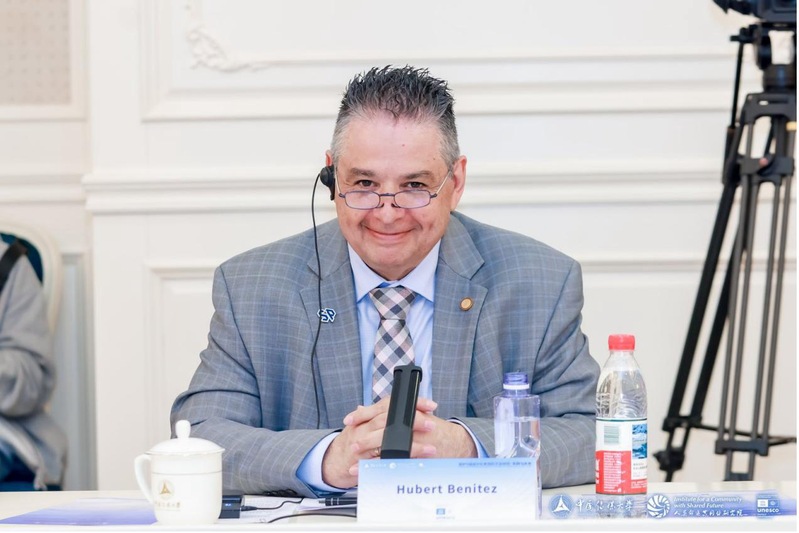
Photo 5 President Hubert Benitez Delivers a Keynote Speech
In his keynote speech, Hubert Benitez stated that higher education should contribute to sustainable development and address the challenges of technology and divisions. It should replace division with dialogue and cultivate cultural envoys. He affirmed the value of the China-US Research Center for the Community with a Shared Future for Humanity, pointed out that culture is not only about culture and identity but also a foundation for sustainable development, and proposed further academic and cultural cooperation with our university. The story of every nation deserves respect, listening, and cherishing. We should promote cultural protection and cultural innovation in parallel, expand the voices of diverse cultures, and jointly build an inclusive and diverse world.
After the opening ceremony, Chin Yee Mun, Director, Tun Tan Cheng Lock Institute of Social Studies, Universiti Tunku Abdul Rahman, Malaysia; Khalid Taimur Akram, Executive Director of the Pakistan Center for a Community with Shared Future; Ahmed Mohamed Elsaid Soliman, Bayt Alhekma Cultural Industry Group, Director of Arabic Research Center for a Global Community with Shared Future; Jean-Christophe Bas, Professor IRIS (Institute for International and Strategic Relations) ,Director of Academic European Network Community with Shared Future; Winston Mano, Professor, School of Communication and Media Studies, University of Westminster, UK; Founder and Editor-in-Chief of the SSCI journal Journal of African Media Studies; Director of the British Center for a Community with Shared Future; Anibal Carlos Zottele, Director of China-Veracruz Research Center, University of Veracruz, Mexico; Director of Research Center for a Community with Shared Future in Mexico;Vice President of International Academic Network for a Community with Shared Future; and Li Huailiang, Dean of the Institute for a Community with Shared Future at Communication University of China, delivered keynote speeches.
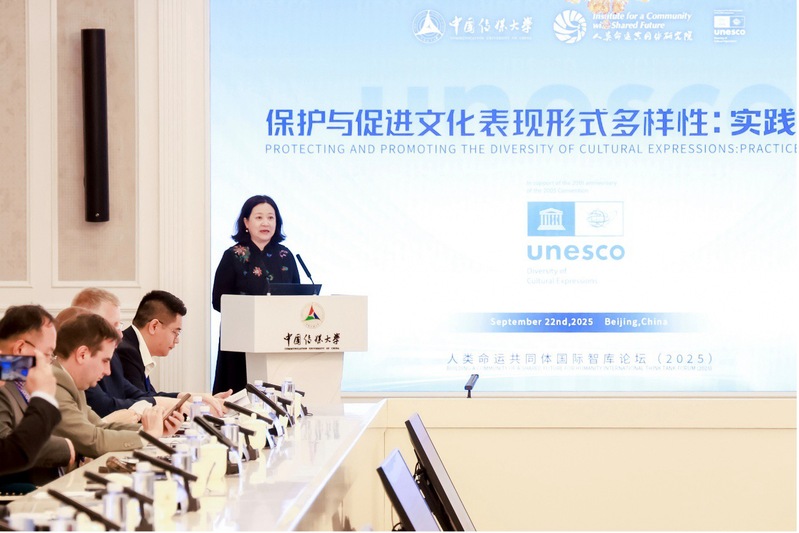
Photo 6 Vice Dean Zhang Yanqiu Presides Over
Zhang Yanqiu, Vice Dean of the Institute for a Community with Shared Future, Communication University of China, presided over the keynote speech session.
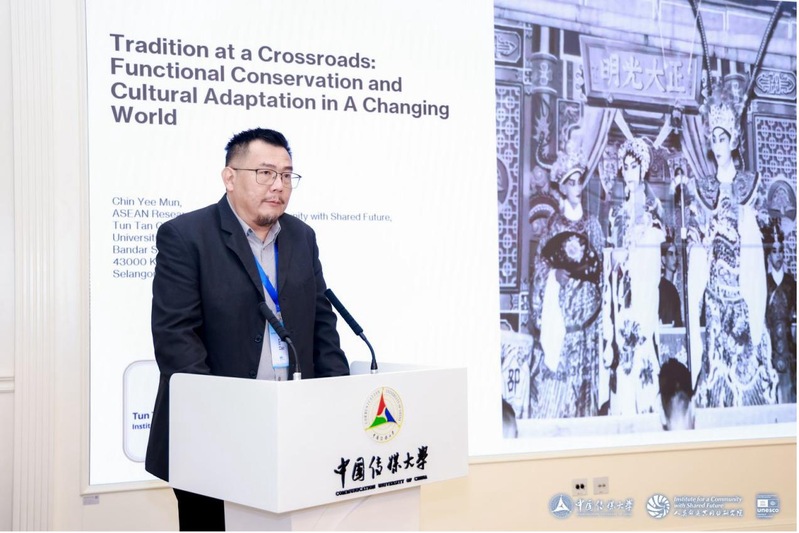
Photo 7 Director Chin Yee Mun Delivers a Keynote Speech
Focusing on “Protecting and Promoting the Diversity of Cultural Expressions”, Chin Yee Mun pointed out that the biggest challenge at present is the rapidly changing world, especially the impact of technological development on traditional cultural practices. He used practical cases to illustrate that traditions that have lost their functions and contradict modern values will naturally die out. In the digital age, traditional culture needs to find new value by redefining functions, flexibly interpreting meanings, and ensuring cultural appropriateness.
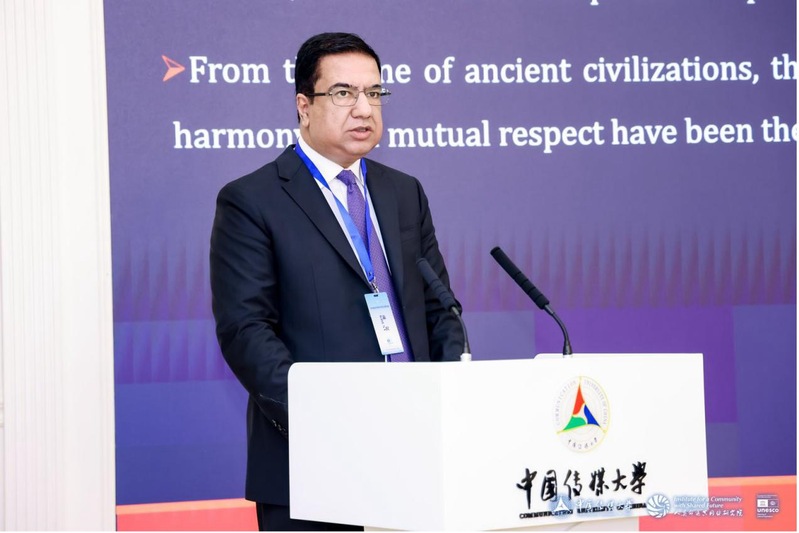
Photo 8 Director Khalid Delivers a Keynote Speech
Khalid Taimur Akram delivered a speech titled Rethinking Culture in a Shared Future by Protecting History and Promoting Innovation. He pointed out that protecting history and promoting innovation are dual drivers of global harmony. He emphasized President Xi Jinping's emphasis on the systematic protection, rational utilization, and international cooperation of cultural heritage. He suggested achieving the harmonious coexistence of different cultures by protecting cultural heritage to preserve history, combining tradition and modernity to promote innovation, and strengthening international cooperation to build a global cultural network.
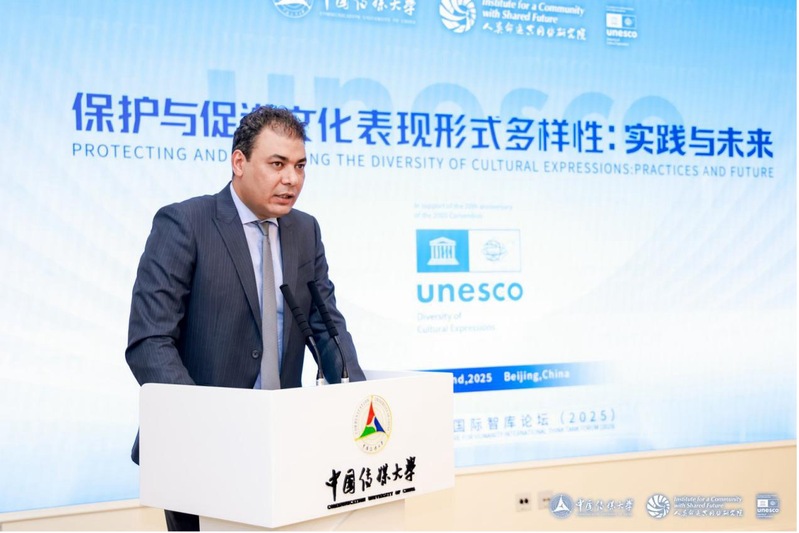
Photo 9 Director Ahmed Elsaid Delivers a Keynote Speech
Ahmed Elsaid is committed to building a bridge between China and Arab countries. He emphasized that cultural diversity should start with respecting languages and cultures and opposed the dominance of a single language. He pointed out that the world is currently facing the challenge of cultural homogenization, and globalization and Western knowledge systems are eroding the space for non-Western expressions. He recognized the special significance of South-South cooperation, advocated the establishment of non-regional cultural cooperation mechanisms, promoted equal dialogue, and put forward five action proposals. He called for choosing a world of diverse coexistence, listening to neglected voices, and jointly building a community with a shared future for humanity.
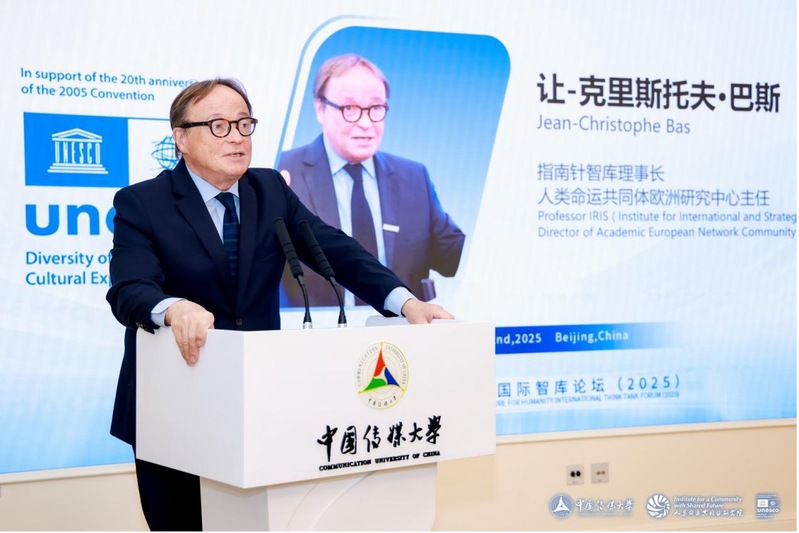
Photo 10. Director Jean-Christophe Bas Delivers a Keynote Speech
Jean-Christophe Bas emphasized that cultural diversity is the source of development and the enrichment of ideas. He advocated seeking common ground while reserving differences, respecting differences, and actively communicating. He expressed his appreciation for President Xi Jinping's speech in 2014 on cherishing diversity and harmony. He pointed out that the world is currently facing challenges such as climate change and artificial intelligence. It is necessary to revive the spirit of the UN Charter, establish a new model of cooperation, protect cultural diversity, and ensure harmonious coexistence. He called for urgent cooperation.
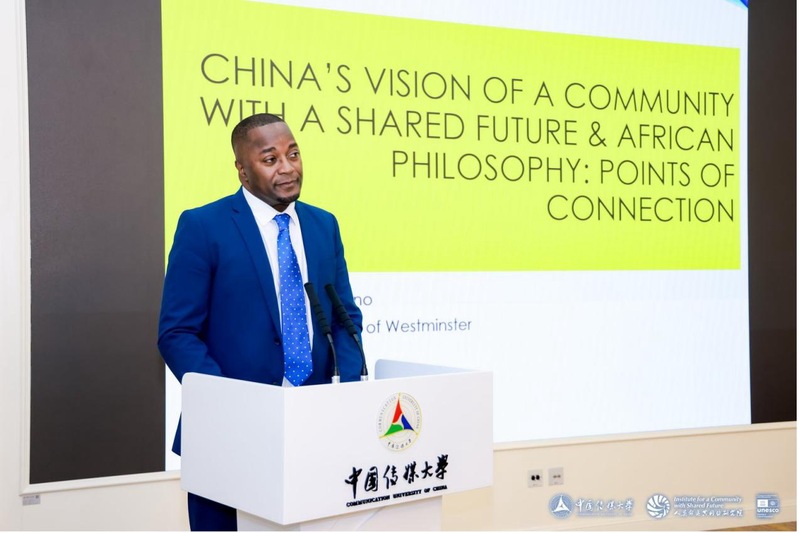
Photo 11 Professor Winston Mano Delivers a Keynote Speech
Winston Mano shared his views on cultural diversity and the Community with a Shared Future for Humanity from an African perspective and in combination with Chinese concepts. He mentioned that Africa attaches great importance to its interaction with China, pointed out the compatibility of Chinese and African philosophical concepts, affirmed China's poverty alleviation achievements, endorsed President Xi Jinping's proposition of respecting the diversity of civilizations and promoting equal learning among civilizations. He believed that China and Africa need to strengthen dialogue and cooperation. He called on Africa to voice its opinions and work with other countries to promote sustainable development.
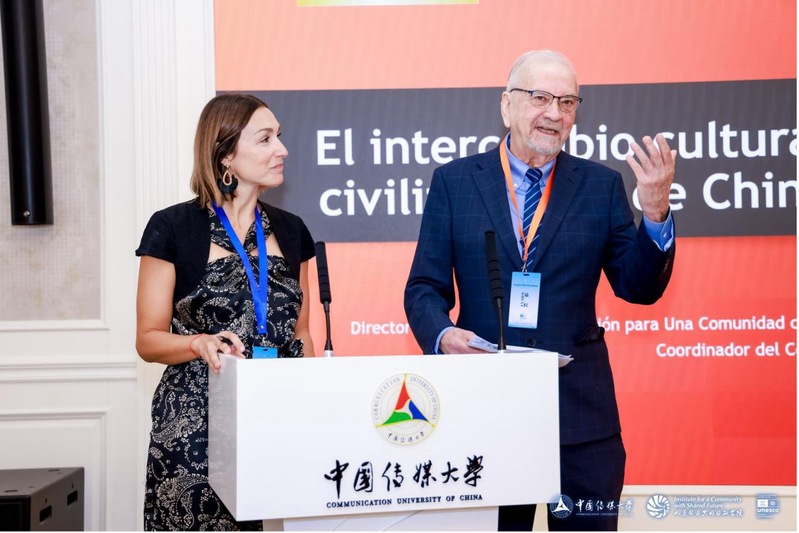
Photo 12 Director Anibal Carlos Zottele (Right) Delivers a Keynote Speech, Translated by Maria Francesca Staiano (Left)
Anibal Carlos Zottele mentioned the importance of President Xi Jinping's relevant initiatives and cultural heritage protection. He said that both China and Mexico, as well as the Latin American region, advocate cultural integration, intangible cultural heritage inheritance, and people-to-people and cultural exchanges at the folk level. He emphasized that although countries have unique development paths and differences, cultural dialogue can promote equality. He pointed out that win-win cooperation is the cornerstone of the future and proposed deepening South-South cooperation, promoting academic dialogue, and media dissemination.
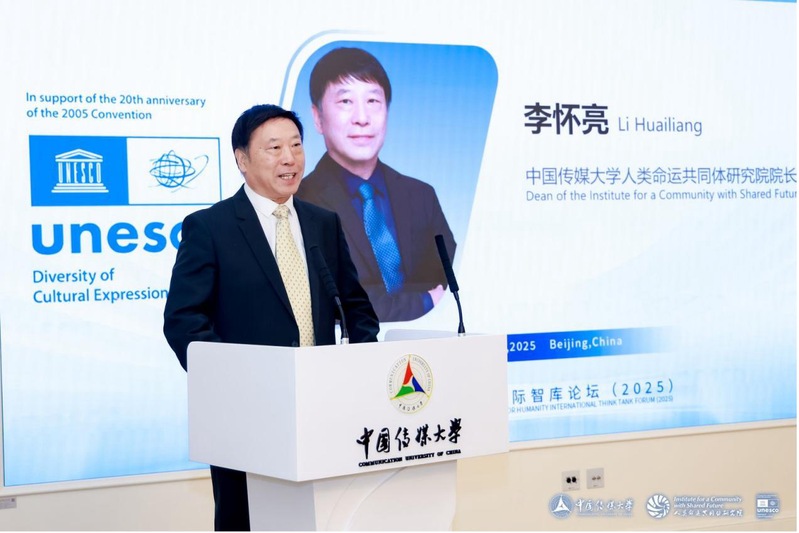
Photo 13 Dean Li Huailiang Delivers a Keynote Speech
Li Huailiang shared his thoughts based on the on-site speeches. He proposed that the harmonious coexistence of countries in the conference room is exactly what the world should look like, and this is the greatest significance of celebrating the 20th anniversary of the Convention on the Protection and Promotion of the Diversity of Cultural Expressions. He emphasized that the biggest contradiction in the current world is the contradiction between China's rise and its lack of understanding and recognition. The concept of the Community with a Shared Future for Humanity advocates that countries' development should not sacrifice the interests of others, and different civilizations should conduct equal dialogue and achieve mutual benefit and win-win results. Guests from various countries gathered because of their common values of pursuing peace, respecting and learning from each other, and conducting equal exchanges. China is willing to work with its global partners. It is hoped that all countries will uphold this concept and jointly build a beautiful world.
In the group dialogue session, more than 20 experts and scholars from St. Peter's University in the United States, Incheon National University in South Korea, Toyo University in Japan, Universiti Tunku Abdul Rahman in Malaysia, St. Augustine University of Tanzania, Kazan Federal University, Universidad Veracruzana in Mexico, etc. conducted in-depth discussions around four topics: Cultural Rights in the Digital Age and the Discourse Power of the Global South in Diversity, Protection and Innovation of Cultural Diversity, Cultural Diversity and Sustainable Development, and Cultural Diversity and Multilateralism.
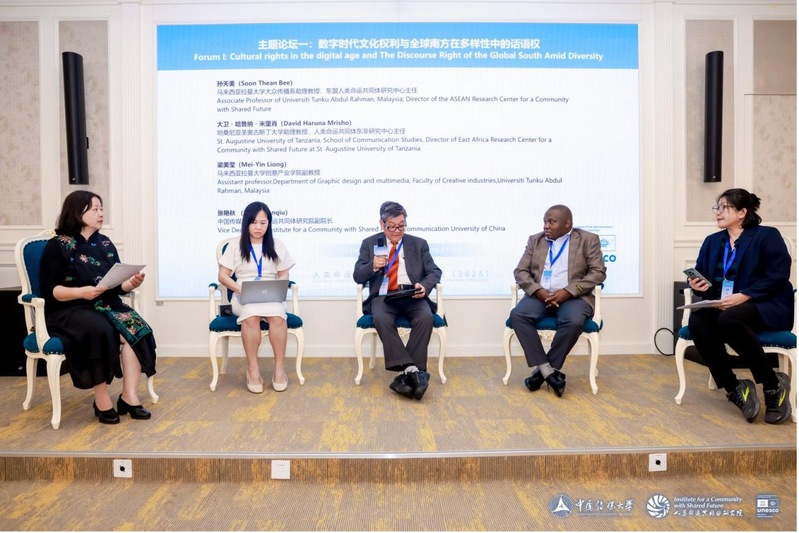
Photo 14 Theme Forum I
Theme Forum I focused on Cultural rights in the digital age and The Discourse Right of the Global South Amid Diversity. It was chaired by Koh King Kee, Chairman of the New Asia Strategic Research Center in Malaysia. Soon Thean Bee, Associate Professor of Universiti Tunku Abdul Rahman, Malaysia, David Haruna Mrisho, Assistant Professor of St. Augustine University of Tanzania, Mei-Yin Liong, Assistant Professor, Universiti Tunku Abdul Rahman, Malaysia, and Zhang Yanqiu, Vice Dean of the Institute for a Community with Shared Future, Communication University of China, spoke successively. Soon Thean Bee proposed that the cooperation between ASEAN and China can shape the discourse power of the Global South, and at the same time pointed out the challenge of digital inequality. David Haruna Mrisho explored cultural intelligence from the cognitive, emotional, and behavioral levels and emphasized cultural equality in the Global South. Mei-Yin Liong believed that it is necessary to support and balance cultural assets in the digital age with policies and strengthen the education of the younger generation. Zhang Yanqiu compared the media systems of China and the West and suggested that Global South countries explore media systems suitable for themselves.
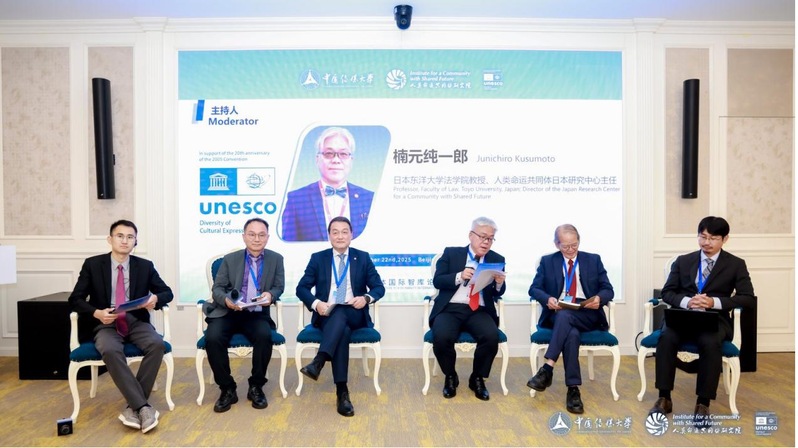
Photo 15 Theme Forum II
Theme Forum II centered on The Protection and Innovation of Cultural Diversity. It was chaired by Junichiro Kusumoto, Professor, Faculty of Law, Toyo University, Japan. Ahn Chiyoung, Dean of the Chinese Academy of Sciences, Incheon National University, Korea, Zhang Suqiu, Professor ,Institute for a Community with Shared Future, Communication University of China, Chen Wanjie, Austrian Director of the Confucius Institute at the University of Graz, Austria, MATSUO KINJI, Philosopher, Research Fellow of the Japan Research Center for a Community with Shared Future, and Masayuki Nishida, Associate Professor, Tohoku Gakuin University, spoke in turn. Ahn Chiyoun, from the perspective of East Asian culture, suggested recognizing the origin and localization of culture from the perspective that culture belongs to all mankind to resolve cultural disputes. Zhang Suqiu proposed that cultural diversity is the foundation of civilized dialogue, emphasizing that innovation is to better protect excellent traditional culture and requires joint efforts at the intellectual, capital, and institutional levels. Chen Wanjie, based on the experience of the Confucius Institute at the University of Graz in Austria, proposed that cultural dissemination needs to go through a five-step cycle. Junichiro Kusumoto explored the relationship among SDG, ESG, and CSFM and introduced the practice of promoting green development in cooperation with Guilin Tourism University. Matsuo Yoshiharu shared his experience in the implementation of the UN's intangible cultural heritage protection and the concept of the Community with a Shared Future for Humanity, taking his hometown as an example. Nishida Masayuki analyzed the protection of world heritage from an anthropological perspective and emphasized the need to promote the diversification of heritage protection.
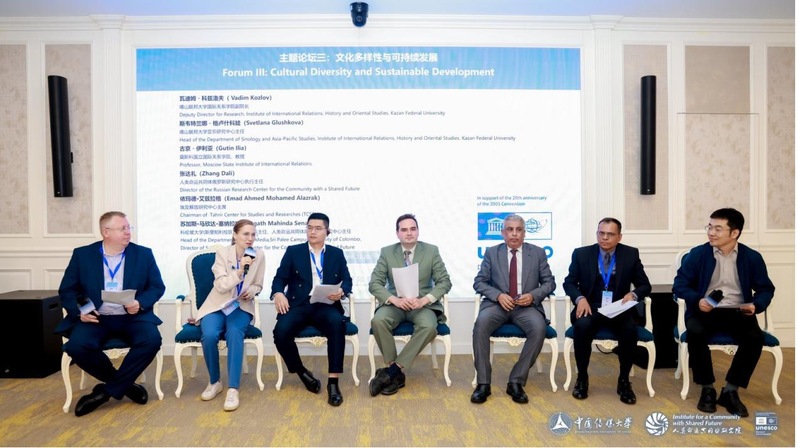
Photo 16 Theme Forum III
Theme Forum III centered on Cultural Diversity and Sustainable Development. It was chaired by Ji Deqiang, Professor of the Communication University of China. Six guests from Russia, Egypt, Sri Lanka and other countries spoke successively. Vadim Kozlov and Svetlana Glushkova from Kazan Federal University introduced the practices of Kazan Federal University in the protection of cultural diversity and emphasized the significance of international exchanges for cultural enrichment. Gutin Illia, Professor of the Moscow State Institute of International Relations took the teaching of Chinese in Russia as an example and pointed out that foreign language teaching is the key to understanding other countries' cultures and can help maintain cultural diversity. Zhang Dali, Director of the Russian Research Center for the Community with a Shared Future, compared the experiences of China and Russia in the protection of cultural diversity and put forward suggestions for future cooperation. Emad Ahmed Mohamed Alazrak, Chairman of Tahrir Center for Studies and Researches (TCSR), combined with the Global Civilization Initiative, emphasized the importance of multilateralism and people - orientation for cultural diversity and sustainable development. Sugath Mahendra Senaratne, Head of the Department of Communication at the University of Colombo (Sri Pada Campus), quoted President Xi Jinping's views and called for promoting cultural exchanges and the protection of cultural diversity through the media, digital communities, and independent research.
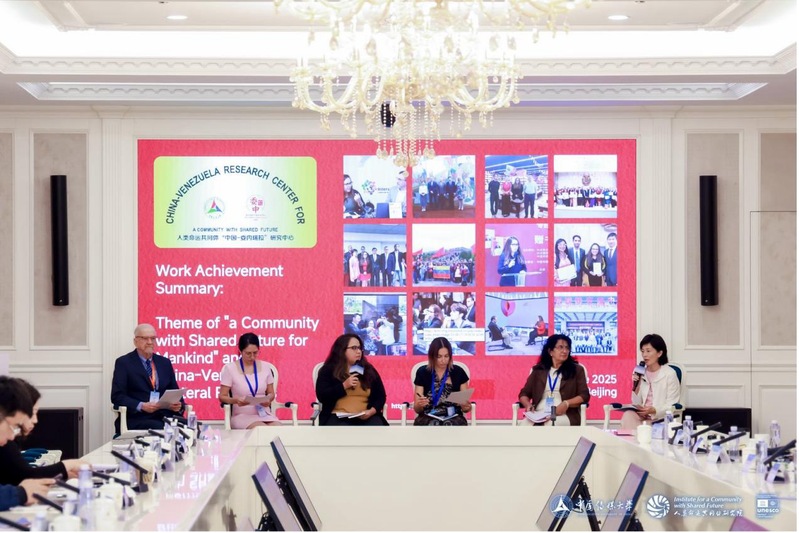
Photo 17 Theme Forum IV
Theme Forum IV focused on Cultural Diversity and Multilateralism. It was chaired by Maria Francesca Staiano, Professor of the National University of La Plata. Aymara Gerdel, Associate Professor of the Central University of Venezuela, Mariluz León Ávila from the Institute of Information and Social Communication (ICS), Anibal Carlos Zottele, Professor of the University of Veracruz, Mexico, and Miriam Sánchez Guevara, Researcher of of China-Veracruz Research Center, University of Veracruz, Mexico spoke successively. Zhang Qing, Head of the Spanish Program, School of International Studies, Communication University of China, served as the interpreter. Aymara Gerdel introduced the China-Latin America Forum and the five major cooperation plans in the past three years, and mentioned that the Central University of Venezuela and Communication University of China have carried out long-term cooperation through research centers to promote the development of China and Latin America. Mariluz León Ávila introduced that Cuba aims at scientific and technological innovation, mass communication, and industrial transformation, and is building a legal framework and cultural and technological parks to seek cooperation. Miriam Sánchez Guevara pointed out that Mexico protects the cultural heritage of indigenous people in accordance with relevant conventions and laws and looks forward to multilateral dialogue to promote the mutual learning of civilizations. Anibal Carlos Zottele analyzed the challenges of the digital divide faced by China and Mexico in the digital age, called for formulating a digital culture strategy, adjusting regulations, and deepening cooperation to protect cultural heritage. Maria Francesca Staiano said that the sharing of guests reflects different understandings of the Community with a Shared Future for Humanity, and all parties can seek symbiosis and interdependence through this to jointly promote the protection of cultural diversity.
